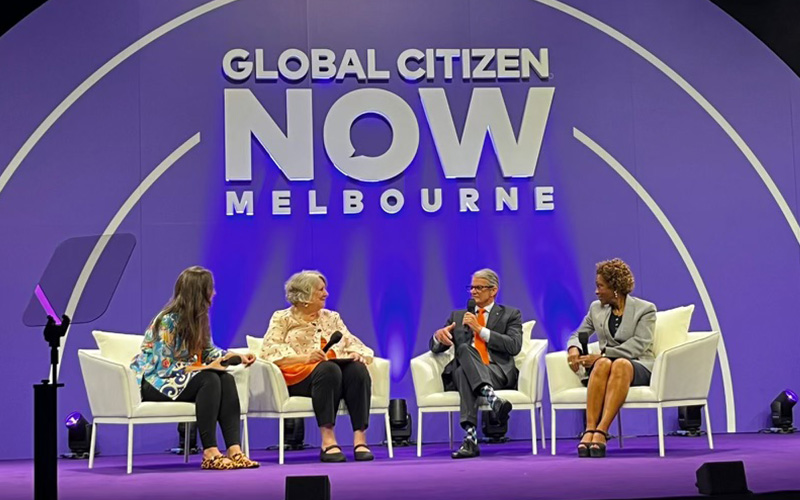
Burnet Director and CEO Professor Brendan Crabb AC joined world leaders, influencers, artists, activists, and philanthropists in Melbourne this week at the inaugural Global Citizen NOW Summit to build a roadmap to end extreme poverty and protect the planet.
Professor Crabb was part of a panel discussion about reducing the spread of infectious diseases through vaccines, treatments, diagnostics, research, and surveillance.
Disruptions caused by the pandemic, particularly in developing countries, have led to a reduction in routine child immunisations, treatments for infectious diseases, and access to primary healthcare.
Speaking about malaria eradication, Professor Crabb said interventions such as vaccines and the implementation of improved public health interventions, such as clean water, hygiene and sanitation, had seen many diseases largely eliminated as public health threats, but other diseases were harder to eradicate.
"We have a Global Fund for HIV, TB and malaria because some diseases are harder, technically harder, and they are harder because they are more ingrained as diseases of poverty, as issues of neglect and marginalised peoples," he said.
Professor Crabb said researchers were constantly looking for new tools to eradicate these diseases.
"I never thought I would see in my lifetime a vaccine for malaria. We now have two," he said.
"We now have to get that vaccine to everyone."
He said new tools needed to be used alongside existing interventions.
"You can’t drop the existing interventions that are working well, for example, insecticide-treated bed nets, and test and treat programs. You need to add these new tools to what is there already, especially through health system strengthening."
"Vaccines are a tool, they are incredibly powerful, but they are not everything. So, we have to use the other things we have, and we have to build on them and say, 'we can do better'."
Professor Crabb said scientific advances were improving human health but unfortunately, the benefits were not being shared equally.
"Whatever we do, including in the science world, has to be seen through the prism of equity," he said.
"The COVID-19 pandemic is still going, and it has caused so much trouble, 25 million deaths, 100 million plus cases of long COVID and still three or four or five million people a year are dying from COVID-19.
"The reason it was so bad and ongoing is because of inequity, both within our own countries, even in rich countries, in middle-income countries, and most definitely in low-income countries...inequity is the core reason it is still going."
"It has not just been a moral and ethical failing, which it is, to have hoarded vaccines in rich countries...it is actually an own goal."
"Australia had 10,000 deaths from COVID-19 this year, that wouldn’t have happened had there not been new variants, and every new variant has come from an under-vaccinated or unvaccinated country."
